The following "Event" code snippet shows the "pure virtual function call" error. However, as mentioned in the title, it happens only when deploying on DEBUG. What makes me curious is why it works flawlessly on RELEASE and why it does even crash (on DEBUG). Alternatively, you can see the snippet here.
#include <list>
#include <iostream>
#include <algorithm>
// use base class to resolve the problem of how to put into collection objects of different types
template <typename TPropertyType>
struct PropertyChangedDelegateBase
{
virtual ~PropertyChangedDelegateBase(){};
virtual void operator()(const TPropertyType& t) = 0;
};
template <typename THandlerOwner, typename TPropertyType>
struct PropertyChangedDelegate : public PropertyChangedDelegateBase<TPropertyType>
{
THandlerOwner* pHandlerOwner_;
typedef void (THandlerOwner::*TPropertyChangeHandler)(const TPropertyType&);
TPropertyChangeHandler handler_;
public:
PropertyChangedDelegate(THandlerOwner* pHandlerOwner, TPropertyChangeHandler handler) :
pHandlerOwner_(pHandlerOwner), handler_(handler){}
void operator()(const TPropertyType& t)
{
(pHandlerOwner_->*handler_)(t);
}
};
template<typename TPropertyType>
class PropertyChangedEvent
{
public:
virtual ~PropertyChangedEvent(){};
void add(PropertyChangedDelegateBase<TPropertyType>* const d)
{
std::list<PropertyChangedDelegateBase<TPropertyType>* const>::const_iterator it = std::find(observers_.begin(), observers_.end(), d);
if(it != observers_.end())
throw std::runtime_error("Observer already registered");
observers_.push_back(d);
}
void remove(PropertyChangedDelegateBase<TPropertyType>* const d)
{
std::list<PropertyChangedDelegateBase<TPropertyType>* const>::const_iterator it = std::find(observers_.begin(), observers_.end(), d);
if(it != observers_.end())
observers_.remove(d);
}
// notify
void operator()(const TPropertyType& newValue)
{
std::list<PropertyChangedDelegateBase<TPropertyType>* const>::const_iterator it = observers_.begin();
for(; it != observers_.end(); ++it)
{
(*it)->operator()(newValue);
}
}
protected:
std::list<PropertyChangedDelegateBase<TPropertyType>* const> observers_;
};
class PropertyOwner
{
int property1_;
float property2_;
public:
PropertyChangedEvent<int> property1ChangedEvent;
PropertyChangedEvent<float> property2ChangedEvent;
PropertyOwner() :
property1_(0),
property2_(0.0f)
{}
int property1() const {return property1_;}
void property1(int n)
{
if(property1_ != n)
{
property1_ = n;
property1ChangedEvent(n);
}
}
float property2() const {return property2_;}
void property2(float n)
{
if(property2_ != n)
{
property2_ = n;
property2ChangedEvent(n);
}
}
};
struct PropertyObserver
{
void OnPropertyChanged(const int& newValue)
{
std::cout << "PropertyObserver::OnPropertyChanged() -> new value is: " << newValue << std::endl;
}
};
int _tmain(int argc, _TCHAR* argv[])
{
PropertyOwner propertyOwner;
PropertyObserver propertyObserver;
// register observers
PropertyChangedDelegate<PropertyObserver, int> delegate(&propertyObserver, &PropertyObserver::OnPropertyChanged);
propertyOwner.property1ChangedEvent.add(&delegate); // Ok!
propertyOwner.property1ChangedEvent.add(&PropertyChangedDelegate<PropertyObserver, int>(&propertyObserver, &PropertyObserver::OnPropertyChanged)); // Error: Virtual pure function call (Debug only)
propertyOwner.property1(1);
return getchar();
}
